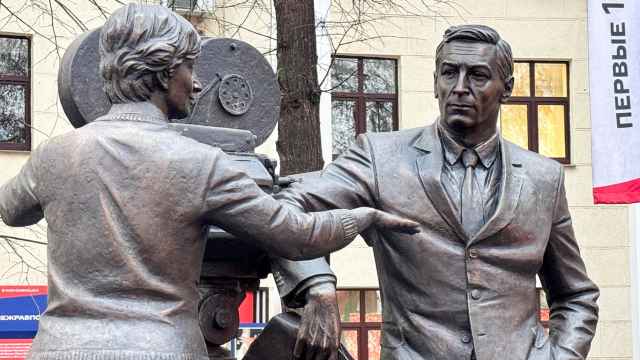Three international pharmaceutical companies praised new amendments to the law on the circulation of medicines on Monday, saying they will bring regulation of the pharmaceutical market closer to global standards.
The amendments have been eagerly anticipated and “will result in the fair regulation of the pharmaceutical market,” said Naira Adamyan, the Russian head of Janssen-Cilag, a subsidiary of Johnson & Johnson. Drug makers Ipsen and Sanofi-Aventis echoed the sentiments.
The State Duma passed amendments last month that forbid producers of generic drugs from using for six years the data from pre-clinical, clinical and pharmacological trials, which are provided by companies registering new drugs in Russia.
The amendments, which were a necessary condition of Russia's accession to the World Trade Organization, will go into effect as soon as the country joins the body.
“Data exclusivity protection exists in many developed countries. But its absence in Russia put producers of original drugs at a disadvantage,” said Yulia Fyodorova, a lawyer at CMS. “Drug makers must disclose the confidential information on clinical trials while registering the medicines, but this information can be easily used by generic makers, which want to register their medicines with the same formula.”
Vladimir Shipkov, executive director of the Association of International Pharmaceutical Manufacturers, said enforcing the norm would increase investment attractiveness of the Russian market for international drug makers.
Marina Veldanova, head of Ipsen in Russia, said the amendments make market regulation clearer to the pharmaceutical companies. But there are still some ambiguities, she said. “Not everything is clear enough or detailed enough for us,” she told The Moscow Times.
Veldanova also said drug makers faced a number of problems conforming to the new law on the circulation of medicines, which went into effect on Sept. 1, since they learned about it very late in the process.
“We were informed in the middle of spring, and it's very difficult for a company to change the business cycle, especially the production cycle, within three to four months,” she said.
A Message from The Moscow Times:
Dear readers,
We are facing unprecedented challenges. Russia's Prosecutor General's Office has designated The Moscow Times as an "undesirable" organization, criminalizing our work and putting our staff at risk of prosecution. This follows our earlier unjust labeling as a "foreign agent."
These actions are direct attempts to silence independent journalism in Russia. The authorities claim our work "discredits the decisions of the Russian leadership." We see things differently: we strive to provide accurate, unbiased reporting on Russia.
We, the journalists of The Moscow Times, refuse to be silenced. But to continue our work, we need your help.
Your support, no matter how small, makes a world of difference. If you can, please support us monthly starting from just $2. It's quick to set up, and every contribution makes a significant impact.
By supporting The Moscow Times, you're defending open, independent journalism in the face of repression. Thank you for standing with us.
Remind me later.





